-
 Short-handed Thunder rally to edge Grizzlies
Short-handed Thunder rally to edge Grizzlies
-
Neighbors in Minneapolis protect each other from US immigration police
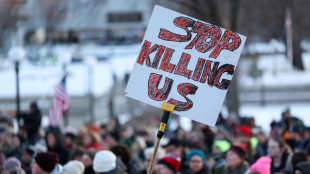
-
 Glenn tops Liu for US figure skating gold as American women eye Olympics
Glenn tops Liu for US figure skating gold as American women eye Olympics
-
Death toll climbs after trash site collapse buries dozens in Philippines

-
 Syria urges Kurdish fighters to surrender after ramping up Aleppo operation
Syria urges Kurdish fighters to surrender after ramping up Aleppo operation
-
Sabalenka into third straight Brisbane final ahead of Australian Open

-
 Chinese villagers struggle for heat as gas subsidies fade
Chinese villagers struggle for heat as gas subsidies fade
-
North Korea accuses South of another drone incursion

-
 Wrexham manager glad Ryan Reynolds on hand for heroics against Forest
Wrexham manager glad Ryan Reynolds on hand for heroics against Forest
-
Arrests reported, cross removed as China crackdown on unofficial churches grows
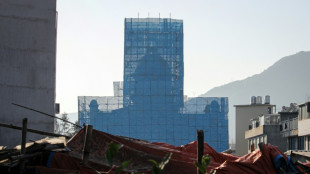
-
 Wrexham ride 'rollercoaster' to knock Nottingham Forest out of FA Cup
Wrexham ride 'rollercoaster' to knock Nottingham Forest out of FA Cup
-
Mavs' Davis has ligament damage in left hand: report

-
 Mavs' Davis has ligament damaged in left hand: report
Mavs' Davis has ligament damaged in left hand: report
-
Australia declares state of disaster as bushfires rage

-
 Morocco coach Regragui urges calm as hosts reach AFCON last four
Morocco coach Regragui urges calm as hosts reach AFCON last four
-
Koepka applies for PGA Tour reinstatement: reports

-
 Bath and Edinburgh close in on Champions Cup last 16
Bath and Edinburgh close in on Champions Cup last 16
-
Anger over Minneapolis shooting probe fuels protests
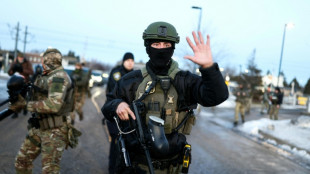
-
 Hosts Morocco march on to AFCON semis as Senegal reach last four
Hosts Morocco march on to AFCON semis as Senegal reach last four
-
Trump pitches Venezuela oil to US majors - and hits skepticism
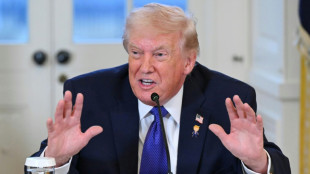
-
 Ebnoutalib scores on debut as Dortmund drop points at Frankfurt
Ebnoutalib scores on debut as Dortmund drop points at Frankfurt
-
Winter Olympic organisers insist ice hockey arena ready despite hole in rink

-
 Diaz scores again as hosts Morocco beat Cameroon to reach AFCON semis
Diaz scores again as hosts Morocco beat Cameroon to reach AFCON semis
-
Minneapolis asks to join probe into woman's killing by immigration officer

-
 MLB hands German outfielder Kepler 80-game doping ban
MLB hands German outfielder Kepler 80-game doping ban
-
MLB hands German outfielder Kepler 80-game doing ban

-
 Brazil's Endrick says Lyon 'ideal club' to boost World Cup ambitions
Brazil's Endrick says Lyon 'ideal club' to boost World Cup ambitions
-
Brew, smell, and serve: AI steals the show at CES 2026

-
 Young 'ecstatic' about NBA move from Hawks to Wizards
Young 'ecstatic' about NBA move from Hawks to Wizards
-
Trump meets oil executives, says $100 bn pledged for Venezuela
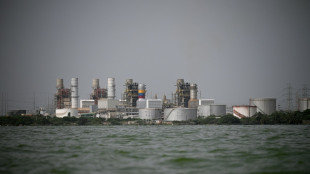
-
 Venezuela says in talks with US to restore diplomatic ties
Venezuela says in talks with US to restore diplomatic ties
-
De Klerk fireworks guide Bengaluru to victory in WPL opener

-
 Uganda's Kiplimo seeks third world cross country crown in a row
Uganda's Kiplimo seeks third world cross country crown in a row
-
Olympic ice hockey arena will be ready for Games: IOC director

-
 Recalled Ndiaye takes Senegal past 10-man Mali into AFCON semis
Recalled Ndiaye takes Senegal past 10-man Mali into AFCON semis
-
'Devastated' Switzerland grieves New Year inferno victims

-
 Man pleads guilty to sending 'abhorrent messages' to England women's footballer Carter
Man pleads guilty to sending 'abhorrent messages' to England women's footballer Carter
-
PGA Tour unveils fall slate with Japan, Mexico, Bermuda stops

-
 'Unhappy' Putin sends message to West with Ukraine strike on EU border
'Unhappy' Putin sends message to West with Ukraine strike on EU border
-
Fletcher defends United academy after Amorim criticism

-
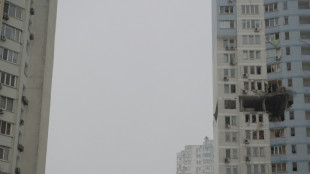 Kyiv mayor calls for temporary evacuation over heating outages
Kyiv mayor calls for temporary evacuation over heating outages
-
Families wait in anguish for prisoners' release in Venezuela

-
 Littler signs reported record £20 million darts deal
Littler signs reported record £20 million darts deal
-
'Devastated' Switzerland grieves deadly New Year fire

-
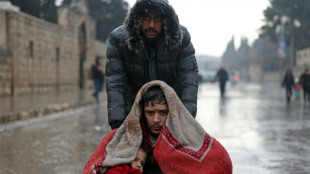 Syria threatens to bomb Kurdish district in Aleppo as fighters refuse to evacuate
Syria threatens to bomb Kurdish district in Aleppo as fighters refuse to evacuate
-
Britain's Princess Catherine 'deeply grateful' after year in cancer remission

-
 Russia joins Chinese, Iran warships for drills off South Africa
Russia joins Chinese, Iran warships for drills off South Africa
-
40 white roses: shaken mourners remember Swiss fire victims

-
 German trial starts of 'White Tiger' online predator
German trial starts of 'White Tiger' online predator
-
Stocks rise despite mixed US jobs data
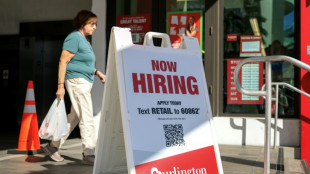
Japan's financial precipice
Japan is grappling with a dire financial crisis as interest rates have surged, doubling to a staggering 0.50%—the highest level since the 2008 global financial crisis. This dramatic shift, orchestrated by the Bank of Japan, marks the end of a prolonged era of ultra-low borrowing costs, leaving the nation teetering on the edge of economic ruin. The people, long accustomed to near-zero rates, now face unprecedented financial pressure as the cost of living soars and debt burdens mount.
For decades, Japan wrestled with stagnation and deflation, a period often dubbed the "Lost Decades." Ultra-low interest rates were a lifeline, keeping borrowing affordable and sustaining a fragile economy. But that lifeline has been severed. Inflation has climbed past the central bank's 2% target, fueled by a tight labor market and rising wages. Emboldened by these signs of economic vigor, the Bank of Japan has pushed forward with its rate hikes, aiming to normalize monetary policy after years of caution.
Yet, this bold move comes at a steep cost. Japan's public debt, one of the largest in the world, now looms larger as servicing costs rise with the higher rates. Households, once shielded by cheap loans, are buckling under increased mortgage and credit payments. Businesses, too, face a reckoning—many small firms, the backbone of the economy, fear they won't survive the tightened conditions. "The shift is too sudden," one economic observer noted, echoing widespread unease. "Families and companies need time to adjust, but time is a luxury we don’t have."
The timing couldn’t be worse. Global uncertainties, from trade disruptions to geopolitical tensions, cast a shadow over Japan’s recovery. Some experts caution that the rate hike could choke off growth just as the economy begins to stir, plunging the nation back into the stagnation it fought so hard to escape. "We’re walking a tightrope," another voice warned, highlighting the delicate balance between curbing inflation and preserving stability.
As Japan stands at this financial precipice, the Bank of Japan faces mounting pressure to monitor the fallout closely. The path ahead is fraught with risk—too aggressive, and the economy could collapse under the weight of debt; too lenient, and inflation could spiral out of control. For now, the people of Japan brace for hardship, their resilience tested once more as the nation navigates this perilous turning point.

Россия: Путин - свинья мира или радости пропаганды убийств

Россия: Преступная "спецоперация" на Украине идет не по плану

Ukrainian army destroys Russian terror scum!

Россия: Власть психует и чувствует неуверенность

Военный преступник России Путин не изменит судьбу человечества!

Россия: Военный преступник Владимир Путин на фронте войны

Russian Bastards murder defenceless children in Ukraine

Россия: Военные преступники Путин заберёт на войну всех

Тысячи погибших солдат российского террора опознаны! Свинья Пригожин теперь хочет мира?

Россия: Пропагандисты ликуют: отрезали голову!

Пригожин оправдывается | Лавров умоляет о везите в США



